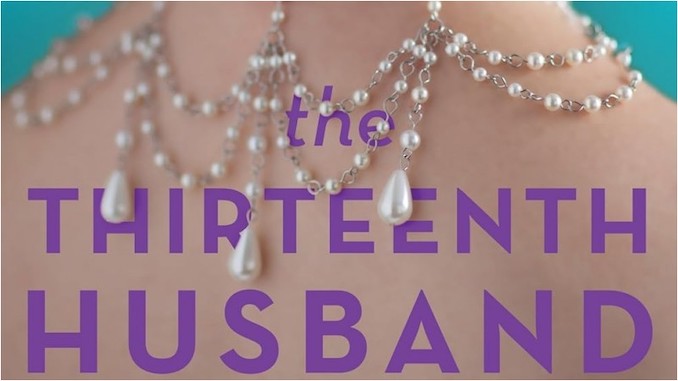Meet An Infamous Nineteenth-Century Heiress In This Excerpt From The Thirteenth Husband

You might already be familiar with Greer Macallister through her excellent high fantasy series The Five Queendoms—which she writes under the name G.R. Macallister—but as an author, she cut her teeth writing historical fiction. (If you haven’t read her excellent The Arctic Fury, a dual-timeline thriller about a group of women lost in a remote wilderness while on the hunt for the lost Franklin expedition, well, consider this a nudge to correct that error.) And now her latest novel, The Thirteenth Husband, is set to dig into the life of a woman who became infamous for living an uninhibited, sexually liberated, and aggressively non-conformist life.
The book is based on the story of the heiress Aimee Crocker, who inherited a ten million dollar fortune in the late nineteenth century, and was subsequently known for exploring the Far East, throwing extravagant parties from New York to Paris to San Francisco, and collecting a string of husbands, lovers, adopted children, snakes (yes, really), and more. The Thirteenth Husband aims to dramatize the remarkable, often unbelievable, life of a trailblazer.
Here’s how the publisher describes the story.
Tearing through millions of dollars, four continents, and a hearty collection of husbands, real-life heiress Aimee Crocker blazed an unbelievable trail of public notoriety, private pain, and the kind of strong independent woman the 1880s had never seen. Her life was stranger than fiction and brighter than the stars, and she whirled through her days as if she was being chased by something larger than herself.
The Thirteenth Husband won’t hit shelves until August 6, but we’ve a look at the book’s first chapter for you right now.

You know, don’t you, that I’ve been fighting this nearly my entire life?
I don’t expect sympathy, of course, from you or anyone. There’s been precious little of that. Certainly none from the tabloid press. People think the rich don’t struggle. And I understand why. Money solves so many problems, opens so many doors. That’s why I held on to mine instead of giving it away: it was the only power I could count on. Because I was so very rich, at almost any point in my life when I wanted to go somewhere, I went. For a woman in these times, that was no small thing.
But with the tabloids dogging my steps, painting me with their scarlet brush in my very girlhood, I had my own struggles. The press called me wild, among other things. They were outraged by the notion of a woman determined to make her own choices. They labeled me an adventuress, a hussy, a known menace. Even when the Philadelphia Inquirer loudly proclaimed me the queen of Bohemia, it wasn’t entirely a compliment. And when I’m dead, they’ll trumpet my husbands’ names in the headlines, as if my marriages were all that mattered. I am more than gold bands and paperwork.
Of course there are men in my story. Some would say an unseemly number. There’s love and scandal, heartbreak and poison, passion and deceit. It takes place in courtrooms and orphanages, palaces and temples, in Hawaii and Tokyo and the world around. And in my story, there are also questions. So many questions. One of which you are the answer to.
The three things that have haunted me all these decades are simple enough to name: the tabloids, the Spanish fortune teller’s prophecy, and the woman in white.
-

-

-

-

-

-

-

-

-

-

-

-

-

-

-

-

-

-

-

-

-

-

-

-

-

-

-

-

-

-

-

-

-

-

-

-

-

-

-

-








































